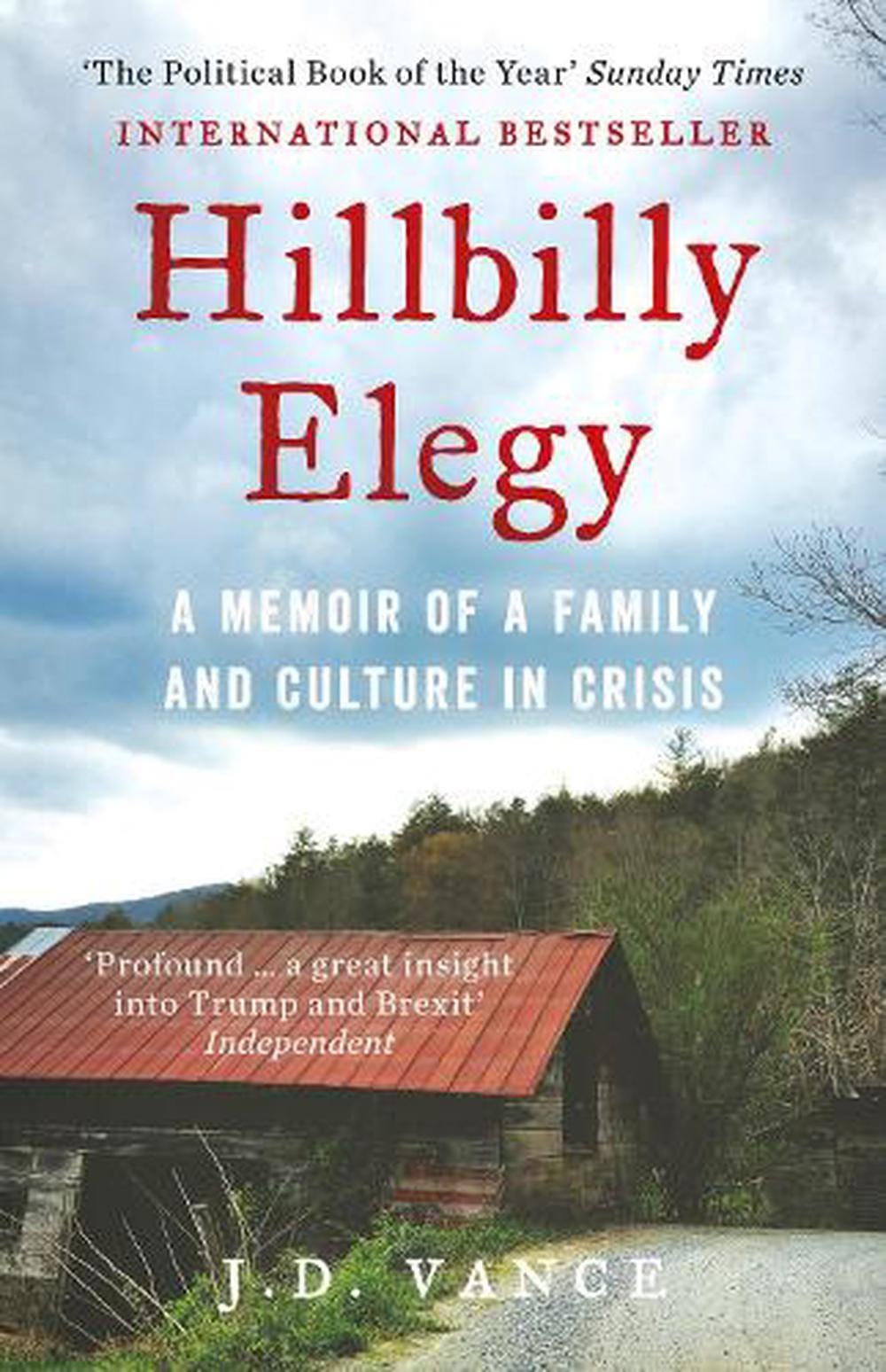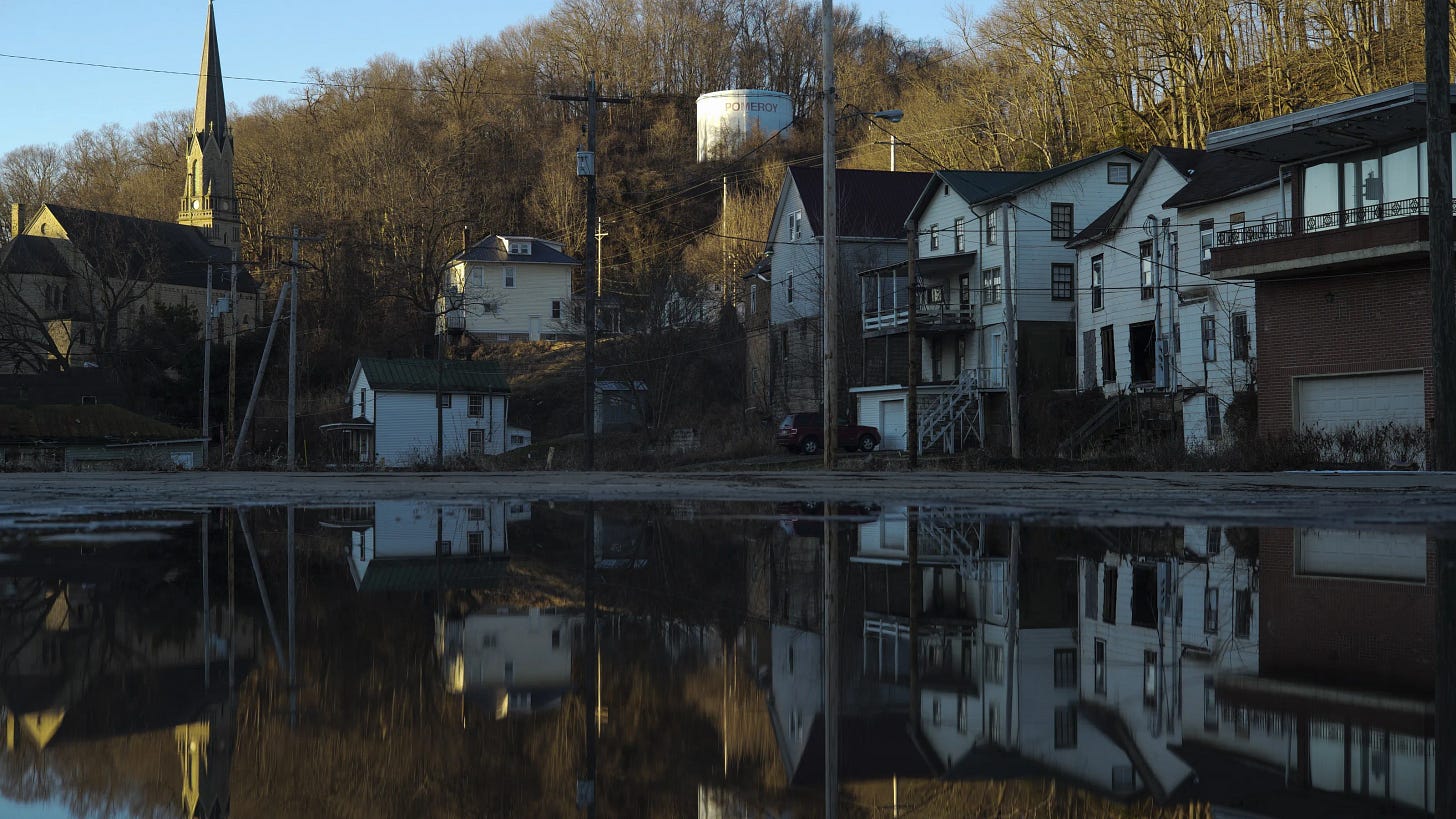In 2022, a friend of mine, a Denver resident, who is always happy to share her reading recommendations, urged me to read "Hillbilly Elegy" by J.D. Vance.
Being that I am Black, this struck me as an odd suggestion. But Christine’s persistent enthusiasm made me curious.
Having been born and raised in Columbus, Ohio’s capital city, I had my own reservations and biases about the areas Vance depicted. The term "hillbilly" itself conjured up images of a world I had avoided, fearing it could be a dangerous scenario for someone like myself.
Vance’s life story is one of compelling transformation. Born in Middletown, Ohio, and raised primarily by his grandparents in Kentucky, Vance navigated a turbulent childhood marred by his mother's addiction and family struggles.
His journey from these beginnings to the U.S. Marine Corps, and later to Ohio State University and Yale Law School made for an interesting read.
Hillbilly Elegy chronicles this journey, offering insights into the socio-economic challenges faced by working-class, rural white Americans. The book became a bestseller and gained particular significance after Trump’s 2016 election victory, as it provided a lens through which many sought to understand Trump's voter base in the Rust Belt.
Reading "Hillbilly Elegy" was a disorienting experience. Vance paints a vivid picture of a world that felt foreign and truly sad.
His portrayal of Appalachian life—the pervasive poverty, the rampant drug addiction, and the complex family dynamics—was both enlightening and troubling. It was a stark reminder of the socio-economic divides that continue to persist throughout our nation today.
Vance’s narrative is steeped in themes of work ethic, personal responsibility, and the impact of upbringing. His grandmother, a formidable force in his life, serves as a beacon of resilience and hope in his tumultuous childhood.
However, the book is not without its controversies. Critics argue that Vance’s emphasis on personal responsibility oversimplifies the roots of poverty and dismisses the structural inequalities that contribute to the struggles of many in Appalachia.
The memoir has been criticized for reinforcing negative stereotypes, presenting a narrow and often reductive view of the region. Vance's portrayal of Appalachian culture—uneducated, unclean, and predominantly white—ignores the region’s diversity and fails to capture its complexity and strengths.
Despite these criticisms, "Hillbilly Elegy" is a worthy read. It offers a raw and personal account of one man’s struggle and success, serving as a testament to the power of perseverance.
The book resonates with many because it touches on universal themes of hardship, family, and the pursuit of the American Dream. For Vance, this dream was achieved through sheer determination and the support of his formidable grandmother.
Vance’s political journey adds another layer to the narrative. Initially skeptical of Trump, Vance later became a staunch ally, leveraging his fame from the book to launch a successful political career.
His recent selection as Trump’s running mate in the 2024 presidential race underscores his rapid rise in Republican politics and his ability to connect with key voter demographics.
Reading "Hillbilly Elegy" on my friend’s recommendation was a reminder of the importance of stepping outside our comfort zones. Books that provoke controversy and challenge our perspectives are crucial.
They force us to confront uncomfortable truths and broaden our understanding of the world. While Vance's memoir may not necessarily align with my own experiences or beliefs, it provided a window into a different America—one that is often overlooked or misunderstood.
In a world that increasingly values echo chambers and confirmation bias, it is vital to engage with diverse narratives. Reading books outside our niche can provoke thought, foster empathy, and promote a deeper understanding of the complexities that define our society.
"Hillbilly Elegy" did just that for me. It was a challenging read, but one that enriched my perspective and reminded me of the value of my friend’s well-intentioned, if unconventional, recommendation.
Subscribe or renew at the $60.00 annual member supporter level and receive a free $10.00 digital gift card to my digital bookstore on Bookshop.org







The sole reason I don't want to read it is because JD Vance profits from it.
I read it several years ago and found it disappointing in substance and style. What seems to be lost on everyone is that J.D. Vance wasn't raised in Appalachia. He was raised in Middletown, Ohio, which lies between Cincinnati and Dayton. As a Rust Belt City, it certainly has seen better days, but to equate it with rural Appalachia is wrong. Additionally, I have friends who were raised in Appalachia and their insights to this region as well as other, better books have been more educational and enriching.